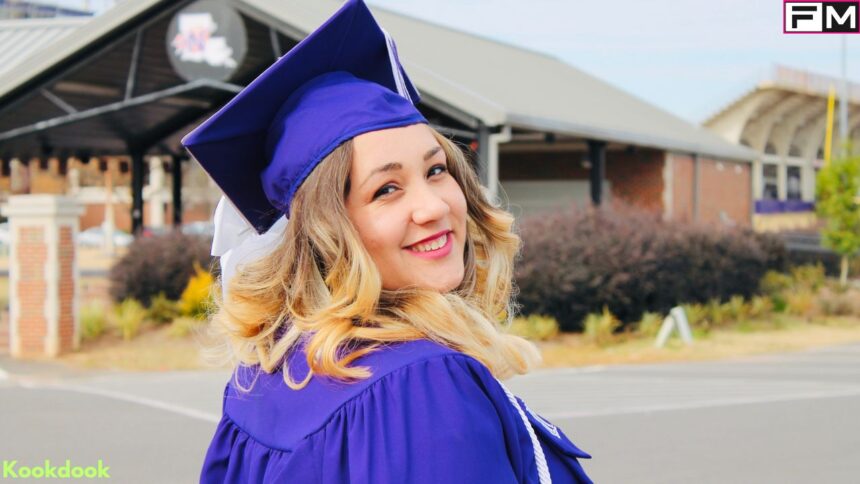Private student loans, they’re like from banks and stuff, not like those federal ones run by the government.
You can use both federal and private loans to pay for school, but usually, federal loans are better. They got stuff like lower interest rates, easy repayment options, and loan forgiveness.
Private Student loans Can Still Be Good if
1. You did that FAFSA thing to see if you can get federal grants and work-study deals.
2. You maxed out on those federal loans, both the ones where they pay the interest and the ones where they don’t.
3. You got good credit (like 690 or higher) or got someone to vouch for you. Most folks who get private student loans have someone else on the hook.
4. You only borrow what you can pay back.
Private Student Loan Providers and Details
| Provider | Min. Credit Score | Fixed APR Range | Variable APR Range |
|---|---|---|---|
| Sallie Mae Undergraduate Student Loan | Mid-600’s | 4.50-15.49% | 6.37-16.70% |
| College Ave Undergraduate Student Loan | Mid-600s | 4.41-16.99% | 5.49-16.99% |
| Ascent Credit-based Student Loan | Low-Mid 600s | 4.48-15.66% | 6.03-15.94% |
| Earnest Undergraduate Loan | 650 | 4.45-14.90% | 4.99-15.30% |
| SoFi Undergraduate Student Loan | Mid-600s | 4.44-14.70% | 5.99-13.97% |
| Education Loan Finance Private Student Loan | 680 | 4.48-12.29% | 4.98-12.79% |
| Funding U Private Student Loan | None | 6.99-12.99% | |
| LendKey Private Student Loan | 660 | 4.39-11.11% | 5.84-11.11% |
| Custom Choice Loan | 600 | 4.43-14.65% | 5.36-15.17% |
| Discover Undergraduate Loan | Varies | 4.49-14.99% | 6.37-16.62% |
| MPOWER Private Student Loan | None | 13.74-15.01% | |
| Funding U Private Student Loan | None | 6.99-12.99% | |
| Ascent Non-Cosigned Student Loan | Low-Mid 600s | 12.71-14.70% | 12.96-14.91% |
| College Ave Graduate Student Loan | Mid-600s | 4.41-14.49% | 5.49-14.49% |
| Ascent Graduate and Health Professions Student Loan | Low-Mid 600s | 5.48-15.66% | 7.05-15.94% |
| RISLA Private Student Loan | 680 | 4.99-6.94% | |
| ISL Private Student Loan | 660 | 3.85-8.40% | 5.59-10.71% |
| Edly Non-Cosigner Student Loan | Varies | N/A | 9.40-23.00% |
Student Loans: What You Need to Know
When it comes to student loans, there are two main types: federal student loans and private student loans. They have some key differences, so let’s break it down in simple terms.
Federal Student Loans:
- To get a federal student loan, you need to fill out a form called the FAFSA.
- These loans come from the government.
- The interest rates on federal loans are fixed, which means they stay the same for the entire loan duration. Congress sets these rates yearly.
- Federal loans usually have origination fees.
- Federal loans offer some benefits, like income-driven repayment plans and Public Service Loan Forgiveness.
Private Student Loans:
- To get a private student loan, you apply through a bank, credit union, or an online lender.
- Private loans can have fixed or variable interest rates based on your creditworthiness.
- Private loans typically don’t have origination fees.
- Private loans may have fewer borrower protections compared to federal loans.
Now, let’s explore how to choose a private college loan online
- Compare offers from different lenders, including banks, credit unions, online companies, and state-based lenders.
- Look for the lowest interest rate.
- Decide between a fixed or variable interest rate. Fixed rates stay the same, while variable rates can change over time.
- Consider borrower protections like deferment and forbearance, as well as repayment options.
- You can also choose your loan term, which affects how quickly you pay off the loan and the total interest you’ll pay.
| Category | Tips for Choosing a Private Student Loan |
|---|---|
| Check your credit score | Your credit score plays a crucial role in loan eligibility and interest rates. Obtain a free annual credit report from each of the three major credit bureaus at AnnualCreditReport.com. |
| Compare offers | Before deciding on a private student loan, compare offers from various lenders. Utilize student loan comparison websites to find the most favorable interest rates and terms. |
| Consider repayment options | Private student loans offer different repayment choices, such as standard, graduated, and extended repayment plans. Select an option that aligns with your budget and financial objectives. |
| Read the fine print | Carefully review the loan agreement’s fine print before signing. This step ensures you comprehend the loan terms, including interest rates, repayment alternatives, and any associated fees. |
Now, let’s move on to how to qualify for a private student loan
- Each lender has its own requirements.
- They consider your credit score and income. Higher scores and incomes usually lead to better rates and higher loan amounts.
- If you’re an undergraduate student, you may need a co-signer, as you might not have established credit or income.
- Some lenders require your school to process federal student aid (Title IV school).
But what if you have bad credit? Well:
- Private lenders might not approve you with bad credit.
- In this case, federal student loans are a better option because they don’t require a good credit history.
- If you’ve maxed out federal loans, you can still get a private loan with a co-signer who has a good credit score.
Now, about co-signers:
- If you have no income or bad credit, you’ll likely need a co-signer for a private student loan.
- Your co-signer should have a steady income and good credit scores.
- If you can’t pay, your co-signer is responsible for the loan.
- Some private lenders allow students to apply without a co-signer, based on academic performance and earning potential.
- Also Read : Top 10 Universities in the U.K.
Applying for a private student loan
- Each lender has its own application requirements.
- You’ll usually need documents to prove your identity, citizenship, and income.
- You may need information about your school’s costs or your financial aid award letter.
- Your credit score and your ability to make payments will also be assessed.
Lastly, let’s talk about student loan interest rates
- Private student loan interest rates can be lower than federal rates if you have good credit.
- Refinancing existing student loans can also get you a lower rate.
- Your creditworthiness plays a significant role in the interest rate you receive.
In summary, understanding the differences between federal and private student loans, how to qualify, and what to expect when applying is crucial when planning for your education. Don’t forget to fill out the FAFSA to maximize your financial aid opportunities.






